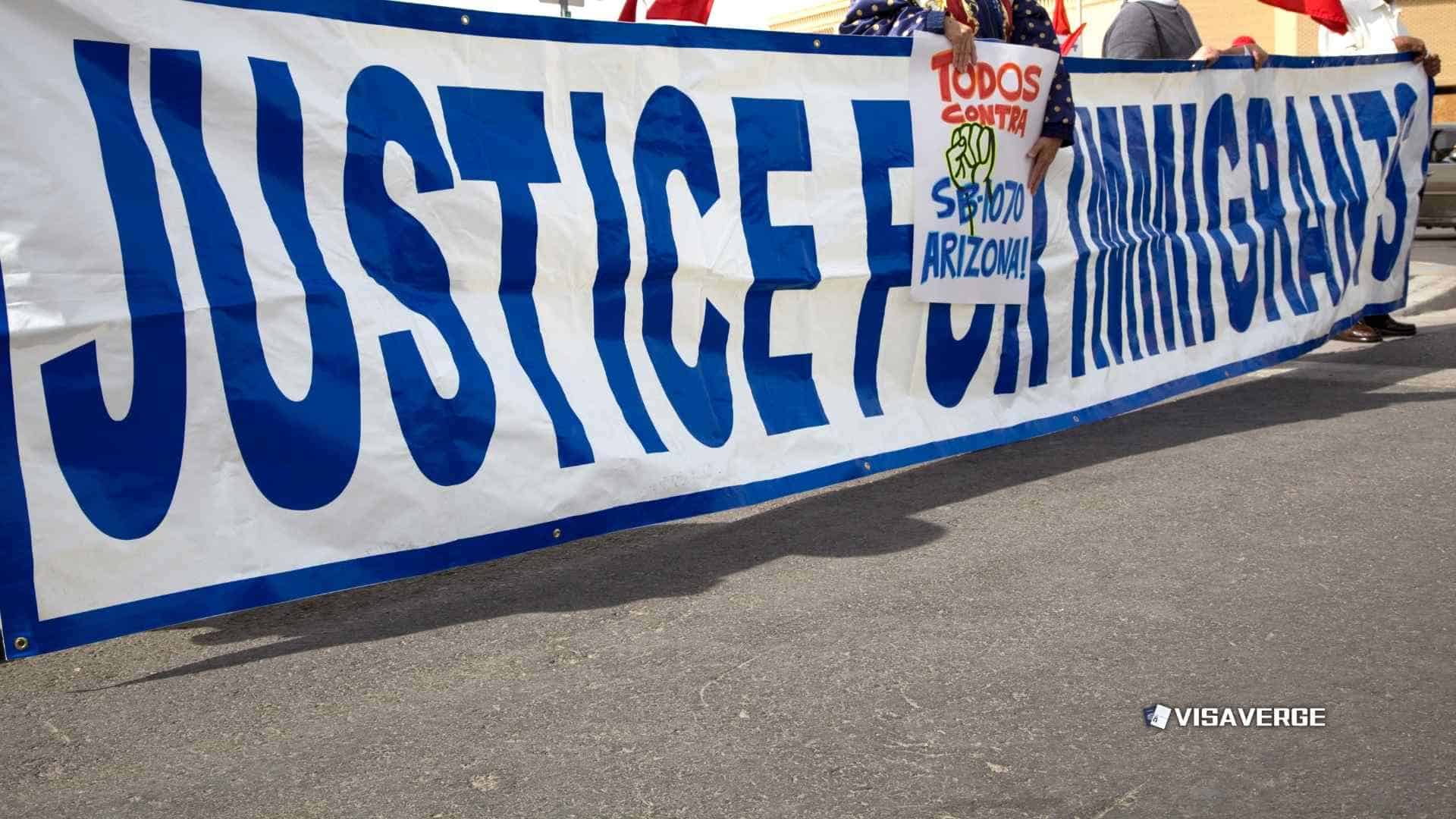(BALTIMORE COUNTY) A weekend Kenyan cookout draws hundreds of families and young adults across Baltimore County as community leaders double down on rights education and voter outreach. Organizers say fear about U.S. immigration enforcement keeps many people anxious, but they’re building a stronger safety net through church, culture, and clear information.
At the center is Thomas Mwaura, a systems analyst for city government and a longtime organizer. He says the cookout isn’t just about food; it’s about “showing up for each other when people feel scared or alone.”

Who’s organizing and why it matters
- International Christian Community Church
- Founded by Mwaura, it now counts more than 200 congregants.
- Serves as a home base for recent arrivals and longtime residents.
- Provides spiritual support, peer counseling, and referrals to trusted attorneys.
- Maryland Kenyan Organization
- Helps with travel and funerals in Kenya.
- Fills gaps when families face sudden loss, tight finances, or paperwork stress.
- Runs fundraisers and logistics support when emergencies arise.
- Hakizetu
- Started by Mwaura, focuses on rights education and political participation.
- Registers eligible voters and connects green card holders to citizenship classes.
- Offers workshops on rights and guidance on speaking at county forums.
These efforts reflect a broader push for Kenyan Immigrant Community Support across the county. Leaders say calm, facts, and trusted messengers reduce panic that spreads on social media.
What people are worried about
- There have been no major new federal policies in 2025 aimed specifically at Kenyans, but national immigration debates and periodic enforcement actions fuel fear.
- Common worries include:
- Status checks at traffic stops
- Scams targeting newcomers
- Misinformation about public benefits
- Children’s mental health when rumors spread at school or online
Recent events that help build trust and information
- July 19, 2025 — Town Hall with Dr. Fred Matiang’i (Kenya’s former Interior Cabinet Secretary) at the Hyatt Regency Baltimore Inner Harbor.
- Attendees asked about supporting relatives back home, staying informed about U.S. policy, and keeping young Kenyans engaged in school and civic life.
- June 21–22, 2025 — AFRAM festival at Druid Hill Park
- Kenyan vendors and artists connected with Black communities across the region.
- August 2, 2025 — “Taste of Africa Dinner and Fundraiser” at the Sankofa Children’s Museum of African Cultures
- Highlighted food, dance, and intergenerational learning.
While not all events are Kenyan-specific, they create community touchpoints that reduce isolation. As reported by VisaVerge.com, sustained engagement through cultural and faith-based networks often improves immigrant access to accurate information and local services.
How leaders counter fear with facts
At the cookout, Hakizetu volunteers run a “Know Your Rights” table and explain practical steps:
- If an officer stops you:
- You can remain silent.
- Carry your ID.
- Do not hand over foreign documents unless required by law.
- Ask if you are free to go.
- At home:
- If officers do not have a signed judicial warrant, you do not have to let them in.
- A warrant signed only by an immigration officer is not sufficient—ask them to slip it under the door.
- At work:
- Employers usually receive government notices first.
- Workers should ask to see any official letter and request time to consult a lawyer.
Volunteers also explain how to avoid scams:
– Never pay for blank forms.
– Never sign anything you don’t understand.
– Verify “notario” claims.
– Only licensed lawyers or DOJ-accredited representatives can give legal advice.
Key takeaway: Clear, accurate information from trusted local networks prevents panic and protects people from scams.
Practical steps for different groups
- Green card holders
- Consider applying for U.S. citizenship if you qualify.
- Benefits: stronger stability, the right to vote, and protection from many removal risks.
- Students
- Keep documents current.
- Talk to school advisors early about work options like on-campus jobs or Optional Practical Training (OPT) if on F-1 status.
- Employers
- Offer clear HR contacts for worker questions about Social Security, I-9 re-verification, and E-Verify.
- Share policies in writing to prevent rumors.
- Families with mixed status
- Create a family preparedness plan:
- List emergency contacts and school pick-up permissions.
- Note where to store birth certificates and passports.
- Include mental health and legal support contacts.
- Create a family preparedness plan:
Key resources on the ground
| Organization | Services |
|---|---|
| International Christian Community Church | Spiritual home, peer counseling, referrals to attorneys |
| Maryland Kenyan Organization | Travel logistics, bereavement support, fundraisers |
| Hakizetu | Workshops on rights, public meetings, voter registration assistance |
Organizers say these networks lessen stress during policy debates. As Mwaura says, “When people know who to call, fear doesn’t take over.”
Recent community momentum and neighborhood activity
- Smaller neighborhood cookouts and cultural meetups happen frequently even when not listed on official calendars.
- Typical activities turn into information hubs:
- Food tents, soccer matches, kids’ games
- Volunteers hand out checklists on documentation, safety, and mental health
- Older students mentor younger ones about school, sports, and college entry
Case study:
– A new arrival worried a rumor that applying for food help could block a future green card.
– Volunteers explained current rules and referred the family to a licensed community legal clinic.
– Result: The family kept a needed appointment with a county benefits worker and the rumor faded.
Official information matters
Community leaders urge reliance on official government pages and trusted local nonprofits rather than viral posts.
- Example: USCIS Forms page (uscis.gov/forms) provides free, current immigration forms and instructions.
- Important: If you mention or file any specific form, always check the current version on the USCIS site to avoid outdated forms and scams.
How policy debates ripple locally
- Even without Kenya-specific rules, debates in Washington affect daily life.
- People ask about:
- DACA expansion
- Asylum policy shifts
- Work visa changes
- These debates influence hiring, family planning, and travel.
- Church leaders report higher demand for mental health referrals during loud policy fights.
The power of belonging
- The cookout’s music and nyama choma bring people together, but the deeper goal is trust.
- Everyday supports include:
- Mentors helping teens apply to college
- Parents swapping tips on driver’s licenses and school forms
- Seniors getting rides to medical appointments
This ordinary help makes families steadier and more resilient.
What to do next
- Sign up for text alerts from your church or local group to avoid missing workshops.
- Keep copies of IDs, birth certificates, and key documents in a safe place.
- Consider U.S. citizenship if eligible — it can protect your family and allow you to vote.
- For official immigration information and forms, visit uscis.gov/forms.
Mwaura sums it up: “We’re not hiding. We’re organizing, we’re voting, and we’re taking care of each other.” The Maryland Kenyan Organization, Hakizetu, and a growing network of church groups say the work will continue—one cookout, one workshop, one family at a time.
The path forward
Baltimore County’s Kenyan community plans more town halls, voter drives, and cultural events through the year. Leaders say steady attendance and clear messages will keep families informed and engaged.
With Kenyan Immigrant Community Support at the center and organizers like Thomas Mwaura guiding both faith and civic action, the Maryland Kenyan Organization aims to turn concern into connection—and connection into lasting strength.
This Article in a Nutshell












